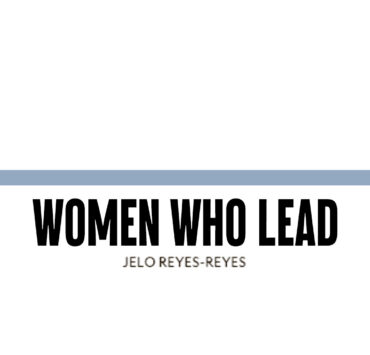Ending global plastic pollution

As countries meet in Busan, South Korea, from Nov. 25 to Dec. 1 to hammer out a Global Plastic Treaty that addresses an environmental scourge, the Philippines would do well to examine how it is implementing a landmark law that could get it out of its notorious ranking as one of the world’s top plastic polluters.
The Extended Producer Responsibility (EPR) Act of 2022 obliges large businesses to be “environmentally responsible” for the plastic waste generated by their products such as the use of plastic sachets, food wrappers, cosmetic containers, single-use plastics, and other packaging made of polymer material. Under the law, big producers are required to achieve “plastic neutrality” by recovering an equivalent amount of their plastic waste footprint through an efficient waste management system, which includes a program for outsourcing waste recovery and recycling.
Republic Act. No. 11898, which took effect on Aug. 12, 2022, amended RA 9003 or the Ecological Solid Waste Management Act of 2000, by extending the producer’s responsibility over the plastic waste generated by their products.
A report last week by Agence France-Presse (AFP) noted that this law obliging producers to pay for their plastic waste is the first in Southeast Asia, and could be among the measures that could be considered in the proposed Global Plastic Treaty. If adopted, it would indeed be a fitting contribution by the Philippines to curb the alarming problem of plastic pollution, of which it is a major contributor.
‘Sachet economy’
World Bank data in 2021 showed that 4.8 to 12.7 million tons of plastic waste leak into the ocean globally each year, with the Philippines being the third-largest contributor—next to China and Indonesia—with an estimated 0.75 million metric tons of “mismanaged plastic” ending up in the ocean.
It’s a constant source of shame for a nation of more than 7,000 islands and a large population dependent on the seas for their livelihood. The plastic conundrum is abetted by economic circumstances, with the poor among us able to access consumer goods only if packed in affordable sachets.
But as the World Bank noted: “… a high dependence on single-use plastics like multilayer sachets and pouches has led the Philippines to become a ‘sachet economy’ that continues to worsen the alarming levels of marine plastic pollution in the region. By some estimates, the Philippines consumes a staggering 163 million pieces of sachets every day.” It added that some 2.7 million tons of plastic waste are generated in the country each year, with 20 percent of this ending up in the ocean and endangering the livelihood and health of coastal communities.
Hefty fines
The enactment of RA 11898 is undoubtedly a big step to address the root cause of the problem—the unbridled production of environmentally harmful plastic and the lack of accountability by profit-driven producers.
These producers are now obliged to install waste management systems to recover and reduce their plastic waste, or be slapped hefty fines of from P5 million to P20 million, and the suspension of their business permit. Under the law, they must comply with the minimum targets set for plastic waste recovery under the following schedules: 20 percent by Dec. 31, 2023; 40 percent by Dec. 31, 2024; 50 percent by Dec. 31, 2025; 60 percent by Dec. 31, 2026; 70 percent by Dec. 31, 2027, and 80 percent by Dec. 31, 2028, and every year thereafter.
How have these targets been complied with?
Environment Undersecretary Jonas Leones was quoted in the AFP report as saying that 486,000 tons of plastic waste were removed last year, topping the 2023 target. So far, the report noted around half of eligible companies under the law have launched their own EPR programs.
Behavioral change
The law also allows producers to outsource their recovery and recycling programs to private “producer responsibility organizations” (PROs) through the plastic credits mechanism. This arrangement can also benefit communities that can participate in waste recovery and earn from it. The government must stay on track and lean heavily on producers of plastic-packed products to be responsible stewards of the environment and to meet the targets and timelines prescribed by law.
The next step would be to encourage these producers to use less plastic or to redesign their packaging to switch to environmentally friendly materials. “Upstream reduction is not really easy,” said Stefanie Beitien, managing director of PCX Solutions, one of the biggest PROs offering plastic credits. “There is no procurement department in the world that accepts a 20 percent higher packaging price just because it’s the right thing to do,” she added.
Stakeholders would agree that the formidable problem of plastic waste requires behavioral change from consumers as well, and this would take time. No matter; the Philippines is leading the way in identifying the major culprits of plastic waste and making them pay for it. Hopefully, this would end the country’s dubious reign as a global ocean polluter.

















